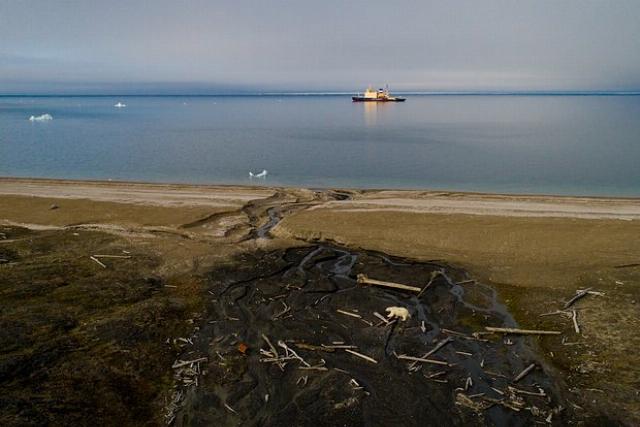NI: Russia is quietly building an Arctic military base on US soil
Russia is actively but quietly developing military infrastructure on Wrangel Island, which the American side considers its territory. This is stated by columnist Brandon Weichert in an article for the American magazine The National Interest (TNI).
Brandon Weichert
The TNI Columnist
For many years, the United States has continued to dispute the ownership of this territory, referring to the legislation of the XIX century.
The author believes that Russia is watching NATO planes from here.
The article claims that there is a "disputed Russian outpost" on the island, the Ushakovskoye facility. It includes the advanced Sopka-2 radar station, which can operate in hurricane-force winds of up to 40 meters per second and temperatures of up to minus 40 degrees Celsius. It is also reported that the facility has other auxiliary infrastructure.
Speaking about the Sopka-2 complex, Weichert notes that it is able to track the movements of American aircraft and equipment from other countries of the North Atlantic Alliance in virtually real time. It is also stated in the material that Sopka-2 can maintain control over the Northern Sea Route.
Brandon Weichert
The TNI Columnist
The United States is confident that the Russian base poses a serious threat.
As Weichert argues, as the Russian Federation increasingly increases its presence in a place that is located just 300 miles from Alaska, this poses a real threat to the United States, in particular, environmental and geopolitical.
Despite this, the observer admits that the island was discovered in 1823 by a Russian expedition, and the American side claimed it only more than half a century later, in 1881, in accordance with its own "Guano Law."
Thus, territorial claims are currently irrelevant, since the State Department refused to promote them during the second administration of the head of the United States, George W. Bush. This is also recognized by American lawyers, but the Wrangel Island controversy still persists.
"As the Arctic ice melts, the United States should resume its claims to the island — at least to use it as a diplomatic lever in relations with Moscow," the author urges.

